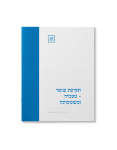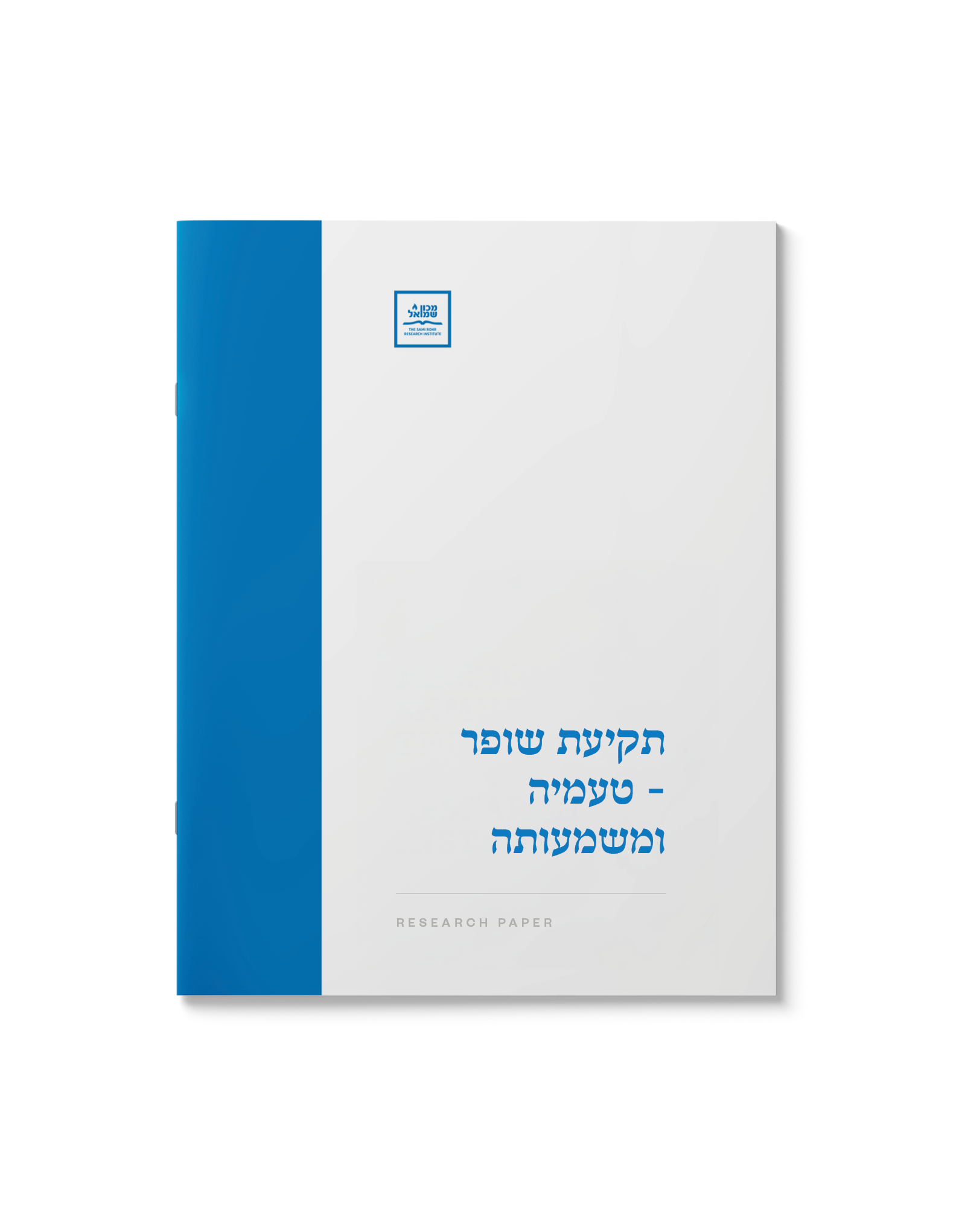תקיעת שופר – טעמיה ומשמעותה
$39.00
בירור מקיף על מצות שופר ומשמעותם הפנימית של סוגי הקולות וסידורם לאור החסידות.
| Language | Hebrew |
|---|---|
| Paper Type | Research Paper |
| Pages | 9 |
Related Products
Shabbos and Yom Tov are both so precious to the Jewish people that many Jews welcome them in early. How does this fit in with the prohibition of adding to a Mitzvah? What is the source of this practice? Study all the opinions and Halachic ramifications.
(Hebrew)
One of the the central themes of Chanukah is Pirsumei Nisa, the public display and celebration of the holiday. Around the world, Menorah’s are kindled in Malls, at City Halls and all sorts of public places. May one recite the traditional blessing over the Chaukah lights if they are being lit in the city square and not in the privacy of one’s home or Shul?
This item features a summary
of halachic opinion regarding the use of Shabbos elevators and prepaid trains
and busses. It also surveys the halachic definition of creating “fire,”
and how poskim define the use of electronic devices and appliances on
Shabbos. This package includes an index with 25 copies of original responsa.
The mandate to rest on Shabbos also precludes having work done for us by gentiles, under specific conditions.
May one send Priority, Express or 2nd Day Mail on Friday? What about ordering through Amazon Prime?
What may one say (or dictate) when scheduling shipping without violating Shabbos by proxy?
This paper features a curricular overview of the mitzvah of experiencing Oneg Shabbos.
Given that both Haman and ‘the Manna’ are spelled the same,
is there any deeper connection between the two?
Legend of a Cookie – The Purim cookie. Three corners, folded to swathe a filling. Supposedly it is named after the wicked Haman from the Purim story. How is this cookie reminiscent of the wicked Haman? (Sources)
“If not for the last minute, nothing would get done.”
The Mishna (Avot 5:6) lists a number of unique items created on that first Friday during Bein Ha-Shmashos (the twilight hour between shkia and tzeis hakochavim).
If our Shabbos observance — characterized by abstaining from creative labor — is to be a reflection of Hashem’s abstention from creation, why must we not engage in creative labor during Bein Ha-Shmashos?
Some fascinating perspectives culled from the Midrash, Kabalah and Chassidus.
“You shall observe My statutes . . and live by them” (Vayikra 18:5).
What halachic guidelines are invoked to protect the well-being of the ill and infirm on fast days? What medical advice should be sought out in advance, and what questions need to be asked? When ought one resort to ‘shiurim’? How are they calculated?
Reviewed by a Moreh Hora’ah B’Poel
Inviting non-Shomrei Shabbat to attend Shul or meals at your
home is often also an invitation for them to drive on Shabbat. What are the
laws of this overlooked yet critical issue? Do the ends ever justify the means?
How can we balance our love for our fellow with our love for halacha?
In response to the buzz surrounding #GefilteFishGate, we shared the following material (free) on our social media feed on Facebook and Twitter
This is where we stand on #GefilteFish
Follow us there for more exclusive content!
One of our most festive Holidays, an all-out celebration of the Torah, has neither Scriptural nor Talmudic basis.
These sources trace the development of this custom as well as many others related to Simchas Torah:
The yearly schedule for completing the reading of the Torah, the ensuing celebration and unique liturgy read on this occasion, the custom of dancing and circling the Bima seven times, other celebratory expressions such as marching with candles, torches and much more.
Also includes a collection of anecdotes regarding the importance of experiencing joy during this event.
(Hebrew)
The popularity of Smart Sensors is on the rise. As more aspects of ordinary life are administered by electronic mechanisms, many practical questions are raised about how observant Jewish life is impacted by the new technology.
When the stairwell lights only turn on when sensing your presence, can you use them on Shabbos? What about the inadvertent motion that triggers a neighbors’ outdoor lights? Can you be present in a room that is monitored by closed-circuit surveillance cameras?
A summary and index of the major contemporary Poskim on this issue.
See also: “An Uplifting Shabbos” on the general issue of Electricity and Shabbos.















